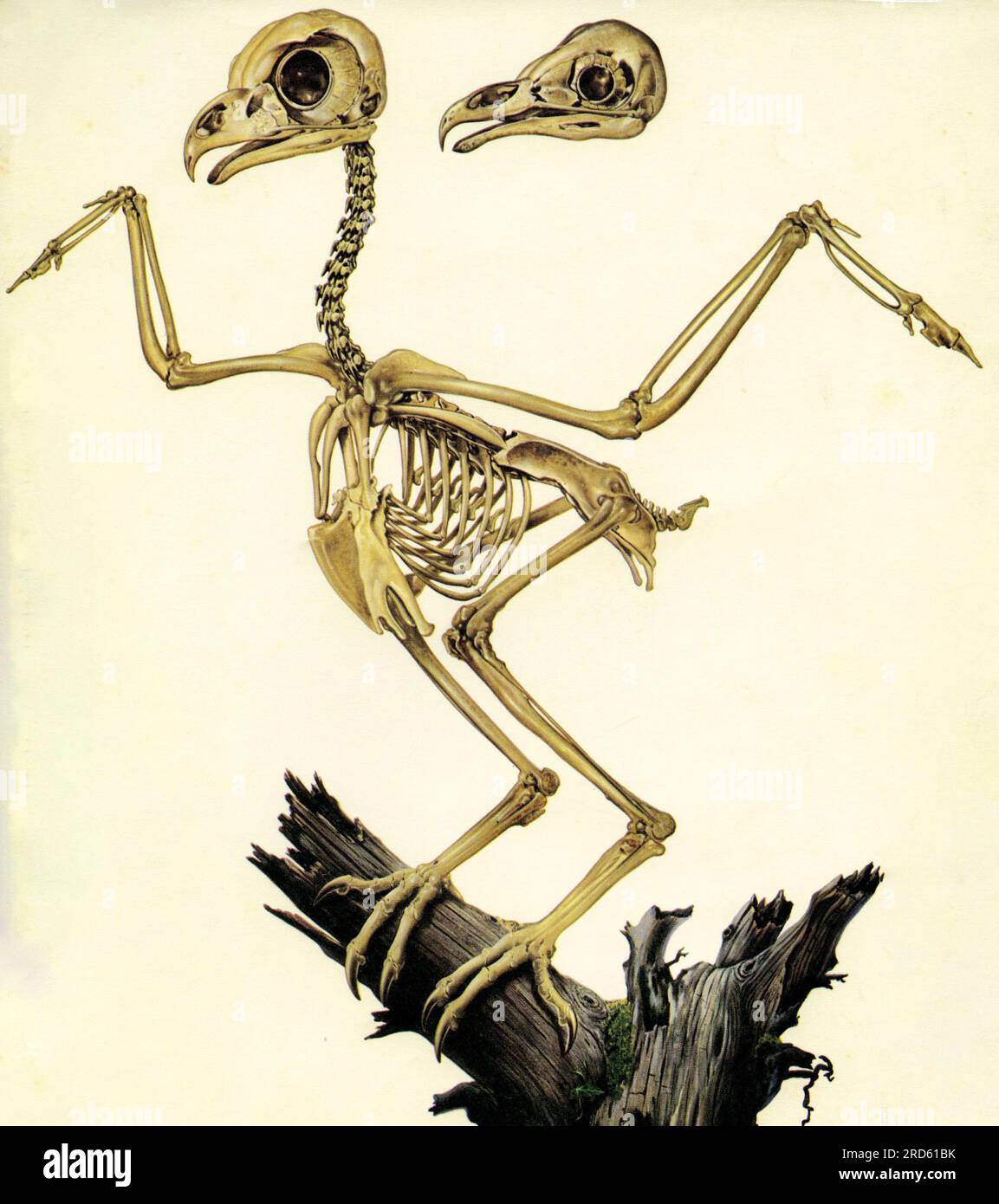Owl skeleton, illustration

Image details
Contributor:
Science Photo Library / Alamy Stock PhotoImage ID:
2RD61BKFile size:
35.9 MB (1.9 MB Compressed download)Releases:
Model - no | Property - noDo I need a release?Dimensions:
3339 x 3762 px | 28.3 x 31.9 cm | 11.1 x 12.5 inches | 300dpiDate taken:
10 July 2023Photographer:
JOHN BAVOSI/SCIENCE PHOTO LIBRARYMore information:
Illustration of an owl (Strigiformes) skeleton. Designed for both walking and flying, an owl skeleton is very light and strong, making up about 8% of its total body weight. Many owl species have asymmetrical skulls, which is an adaptation for directional hearing to avoid predators. The large flat breastbone supports the powerful flight muscles. The wing bones are long in owls, allowing for easy take-offs and effortless flight. The foot bones are short, facilitating the efficient killing and carrying of prey. Famously, an owl can turn its head up to 270 degrees left or right from the forward-facing position. One factor that facilitates this is that owls have 14 vertebrae in their neck, twice the number of vertebrae in humans.